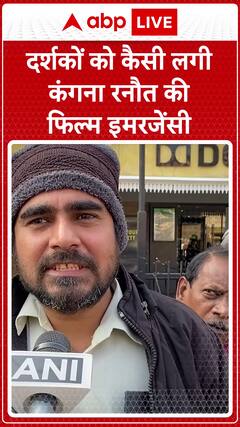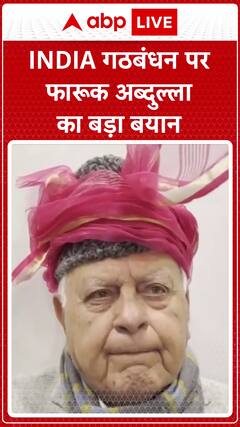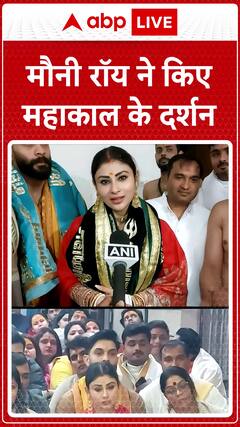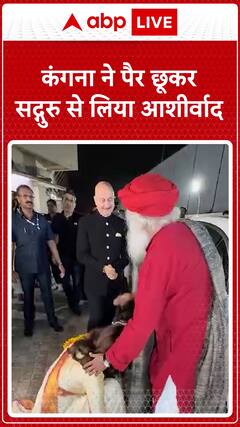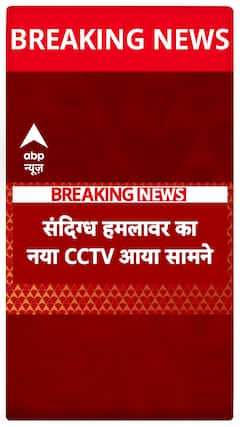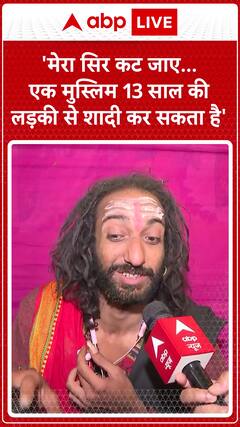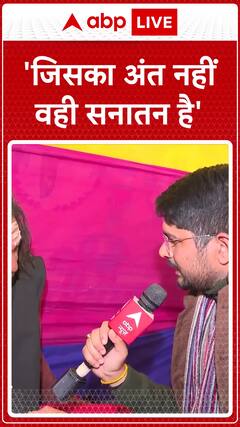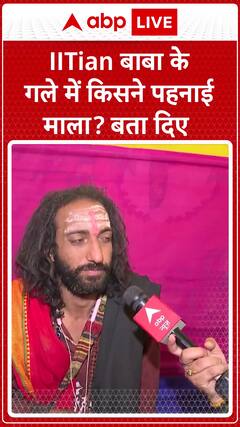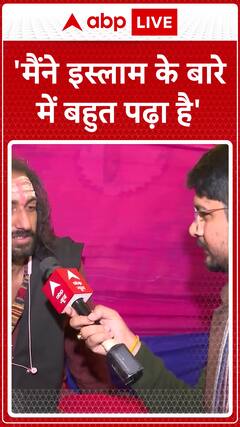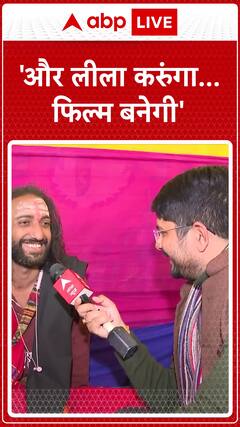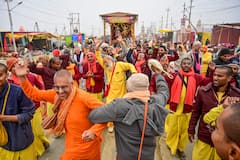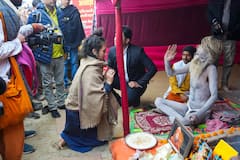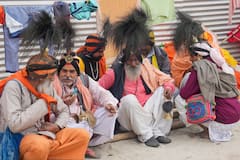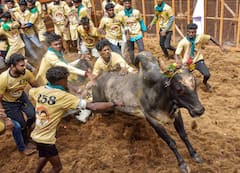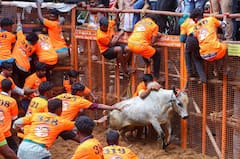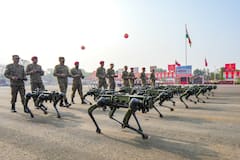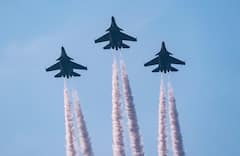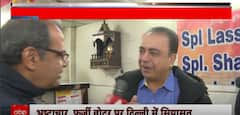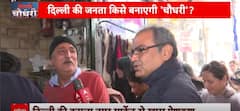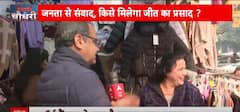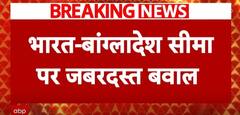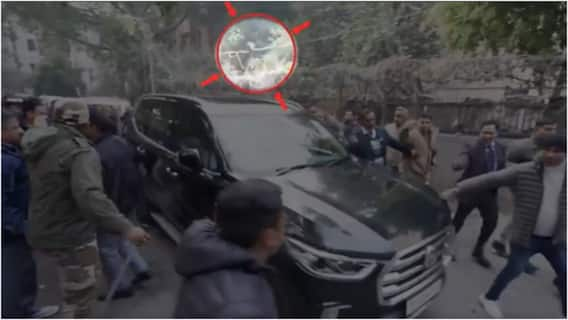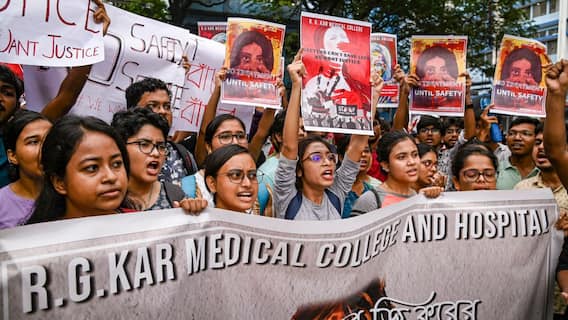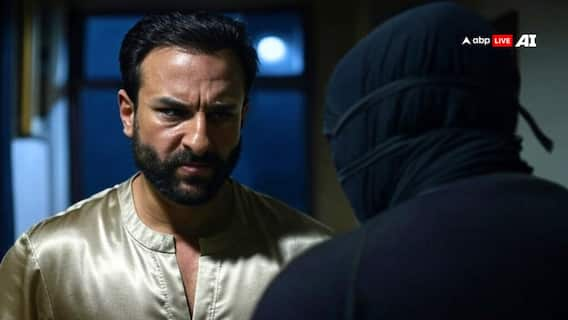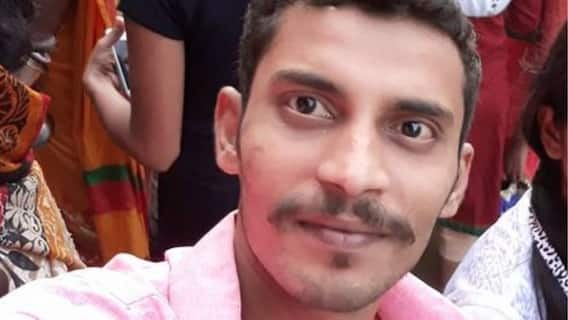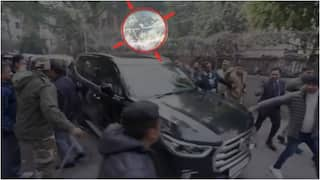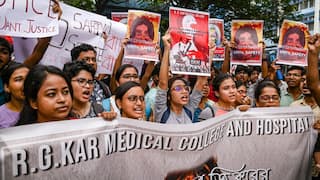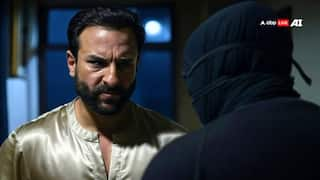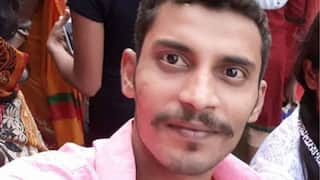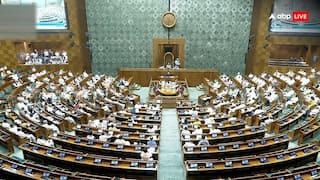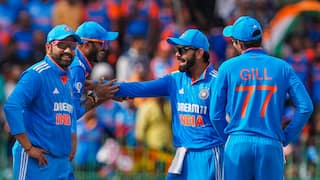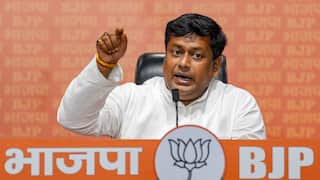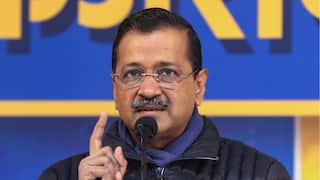Explorer
Karnataka Elections: Sadananda Gowda casts vote, poses with inked finger
Sadananda Gowda posed for shutterbugs after casting his vote
About Karnataka Elections
Almost five crore citizens of Karnataka will visit polling booths to exercise their franchise to elect their representatives to the state assembly today.
The election in Karnataka is considered crucial for the Congress Party, as it would be looking to prevent the Bharatiya Janata Party (BJP) juggernaut from expanding its footprints in the south.
Since the 2014 general election, the Congress has been defeated by the BJP in over a dozen states, drastically shrinking its political footprint.
The BJP is making an all-out bid to oust the Siddaramaiah government in Karnataka and is looking to come back to power in the state with B.S. Yeddyurappa, its chief ministerial candidate. Interestingly, no incumbent government has been re-elected in Karnataka since 1985.
The Janata Dal (Secular) is looking to establish itself once again in Karnataka politics and is expected to give a tough fight to both the BJP and the Congress.
Voting for the 224-member assembly will begin at 7 am across Karnataka on Saturday morning, except in Jayanagar constituency, following the demise of Bharatiya Janata Party (BJP) candidate B. N. Vijayakumar on May 4.
The polling will continue till 6 pm in 58,546 polling stations each, equipped with Electronic Voting Machines (EVMs) and Voter Verified Paper Audit Trails. (VVPATs).
A total of 2,654 candidates are in the fray and 4.96-crore electorate, including 2.44 crore women, will cast their votes. Over 15 lakh people are first-time voters in the 18-19 age group.
Tight security is in place to ensure smooth and peaceful polling across the 224 assembly constituencies spread across 30 districts.
The Bharatiya Janata Party (BJP) has fielded 223 candidates, while Congress and Janata Dal (Secular) have fielded 222 and 201 seats respectively.
Out of the 224 seats, 36 of them are reserved for Scheduled Castes (SCs), while 15 of them are for Scheduled Tribes (STs).
The majority mark for any party to form the government is 112 in the 225-member assembly. While elections are held for 224 seats, one member is nominated by the state governor from the Anglo-Indian community.
Votes will be counted and results declared on May 15.
Of the 2,564 candidates analysed, about 883 (34 per cent) are crorepati candidates.
Party wise, nearly all the candidates of both the national parties, Congress and the BJP, are crorepatis. Congress has 207 (94 per cent) crorepati candidates, while the BJP has 208 (93 per cent) millionaire contestants. Not far behind is the Janata Dal (United) (JD-U), with its 154 (77 per cent) crorepati contestants.
In addition to crorepati candidates, 645, or 24 per cent, contestants are such who have criminal cases registered against them.
Further, 25 per cent seats have been declared red alert constituencies.
This means there 56 assembly constituencies wherein three or more candidates with declared criminal cases are contesting in the Karnataka election.
Meanwhile, the smallest constituency in terms of area is Dasarahalli seat in Bengaluru Urban district. It measures just 8.91 sq km in size and has 2.3 lakh male and 2 lakh female voters.
P.N. Krishnamurthy from Congress and R. Manjunatha from JD(S) will fight two-time BJP MLA S. Muniraju for the seat.
The biggest constituency in terms of area is the Haliyal seat located in Uttara Kannada district in north Karnataka.
Congress leader R.V. Deshpande, who is the Medium and Heavy Industries Minister is the incumbent MLA from this seat. He will face K.R. Ramesh of JD(S) and Sunil V. Hegde of the BJP respectively to defend his seat.
In terms of the size of the electorate, Sringeri is the smallest constituency. It is a prominent religious town situated in the hilly Chikkamagaluru district in south Karnataka and has been a BJP bastion since 2004. It has 1.6 lakh voters.
Sitting MLA D.N. Jeevaraj of the BJP will take on Congress' T.D. Rajegowda and JD(S)' H.G. Venkatesh.
While in Bengaluru South, which has the biggest electorate of 5.5 lakh voters, will witness the contest among BJP's incumbent MLA M. Krishnappa, Congress' R.K. Ramesh and JD(S)' R. Prabhakar Reddy.
In 2013, the Congress won with an absolute majority. It won 122 seats, 10 more than the majority mark of 112, while the BJP and JD(S) won 40 seats each. The voter turnout recorded then was 71.29 percent.
Other parties bagged 22 seats in the 224-seat legislative assembly. Siddaramaiah was sworn in as the new chief minister after the election.
About Karnataka Elections
Almost five crore citizens of Karnataka will visit polling booths to exercise their franchise to elect their representatives to the state assembly today.
The election in Karnataka is considered crucial for the Congress Party, as it would be looking to prevent the Bharatiya Janata Party (BJP) juggernaut from expanding its footprints in the south.
Since the 2014 general election, the Congress has been defeated by the BJP in over a dozen states, drastically shrinking its political footprint.
The BJP is making an all-out bid to oust the Siddaramaiah government in Karnataka and is looking to come back to power in the state with B.S. Yeddyurappa, its chief ministerial candidate. Interestingly, no incumbent government has been re-elected in Karnataka since 1985.
The Janata Dal (Secular) is looking to establish itself once again in Karnataka politics and is expected to give a tough fight to both the BJP and the Congress.
Voting for the 224-member assembly will begin at 7 am across Karnataka on Saturday morning, except in Jayanagar constituency, following the demise of Bharatiya Janata Party (BJP) candidate B. N. Vijayakumar on May 4.
The polling will continue till 6 pm in 58,546 polling stations each, equipped with Electronic Voting Machines (EVMs) and Voter Verified Paper Audit Trails. (VVPATs).
A total of 2,654 candidates are in the fray and 4.96-crore electorate, including 2.44 crore women, will cast their votes. Over 15 lakh people are first-time voters in the 18-19 age group.
Tight security is in place to ensure smooth and peaceful polling across the 224 assembly constituencies spread across 30 districts.
The Bharatiya Janata Party (BJP) has fielded 223 candidates, while Congress and Janata Dal (Secular) have fielded 222 and 201 seats respectively.
Out of the 224 seats, 36 of them are reserved for Scheduled Castes (SCs), while 15 of them are for Scheduled Tribes (STs).
The majority mark for any party to form the government is 112 in the 225-member assembly. While elections are held for 224 seats, one member is nominated by the state governor from the Anglo-Indian community.
Votes will be counted and results declared on May 15.
Of the 2,564 candidates analysed, about 883 (34 per cent) are crorepati candidates.
Party wise, nearly all the candidates of both the national parties, Congress and the BJP, are crorepatis. Congress has 207 (94 per cent) crorepati candidates, while the BJP has 208 (93 per cent) millionaire contestants. Not far behind is the Janata Dal (United) (JD-U), with its 154 (77 per cent) crorepati contestants.
In addition to crorepati candidates, 645, or 24 per cent, contestants are such who have criminal cases registered against them.
Further, 25 per cent seats have been declared red alert constituencies.
This means there 56 assembly constituencies wherein three or more candidates with declared criminal cases are contesting in the Karnataka election.
Meanwhile, the smallest constituency in terms of area is Dasarahalli seat in Bengaluru Urban district. It measures just 8.91 sq km in size and has 2.3 lakh male and 2 lakh female voters.
P.N. Krishnamurthy from Congress and R. Manjunatha from JD(S) will fight two-time BJP MLA S. Muniraju for the seat.
The biggest constituency in terms of area is the Haliyal seat located in Uttara Kannada district in north Karnataka.
Congress leader R.V. Deshpande, who is the Medium and Heavy Industries Minister is the incumbent MLA from this seat. He will face K.R. Ramesh of JD(S) and Sunil V. Hegde of the BJP respectively to defend his seat.
In terms of the size of the electorate, Sringeri is the smallest constituency. It is a prominent religious town situated in the hilly Chikkamagaluru district in south Karnataka and has been a BJP bastion since 2004. It has 1.6 lakh voters.
Sitting MLA D.N. Jeevaraj of the BJP will take on Congress' T.D. Rajegowda and JD(S)' H.G. Venkatesh.
While in Bengaluru South, which has the biggest electorate of 5.5 lakh voters, will witness the contest among BJP's incumbent MLA M. Krishnappa, Congress' R.K. Ramesh and JD(S)' R. Prabhakar Reddy.
In 2013, the Congress won with an absolute majority. It won 122 seats, 10 more than the majority mark of 112, while the BJP and JD(S) won 40 seats each. The voter turnout recorded then was 71.29 percent.
Other parties bagged 22 seats in the 224-seat legislative assembly. Siddaramaiah was sworn in as the new chief minister after the election.
Subscribe our YouTube channel here: https://www.youtube.com/user/abpnewstv
Like us on Facebook: https://www.facebook.com/abplive/
Follow us on Twitter: https://twitter.com/abpnewstv
And do not miss any updates on our website: http://www.abplive.in/videos
News

Delhi Election 2025: Delhi Residents Say Overpopulation Causes Strain on Basic Services | ABP NEWS

Delhi Election 2025: Delhi Residents Support AAP, Say Party Thinks About Common People | ABP NEWS

Delhi Election 2025: Kamla Nagar Residents Claim They Will Support BJP This Time | ABP NEWS

Breaking News: Violence Erupts at India-Bangladesh Border, Gas Bombs Thrown in Malda | ABP NEWS

Breaking News: Crime Branch Sharpen Probe in Saif Ali Khan Attack, Home Search Ongoing | ABP NEWS
View More
Advertisement
Advertisement
Advertisement
Top Headlines
Election 2025
Cities
Cities
Cities
Advertisement
Trending News


Sagarneel SinhaSagarneel Sinha
Opinion





